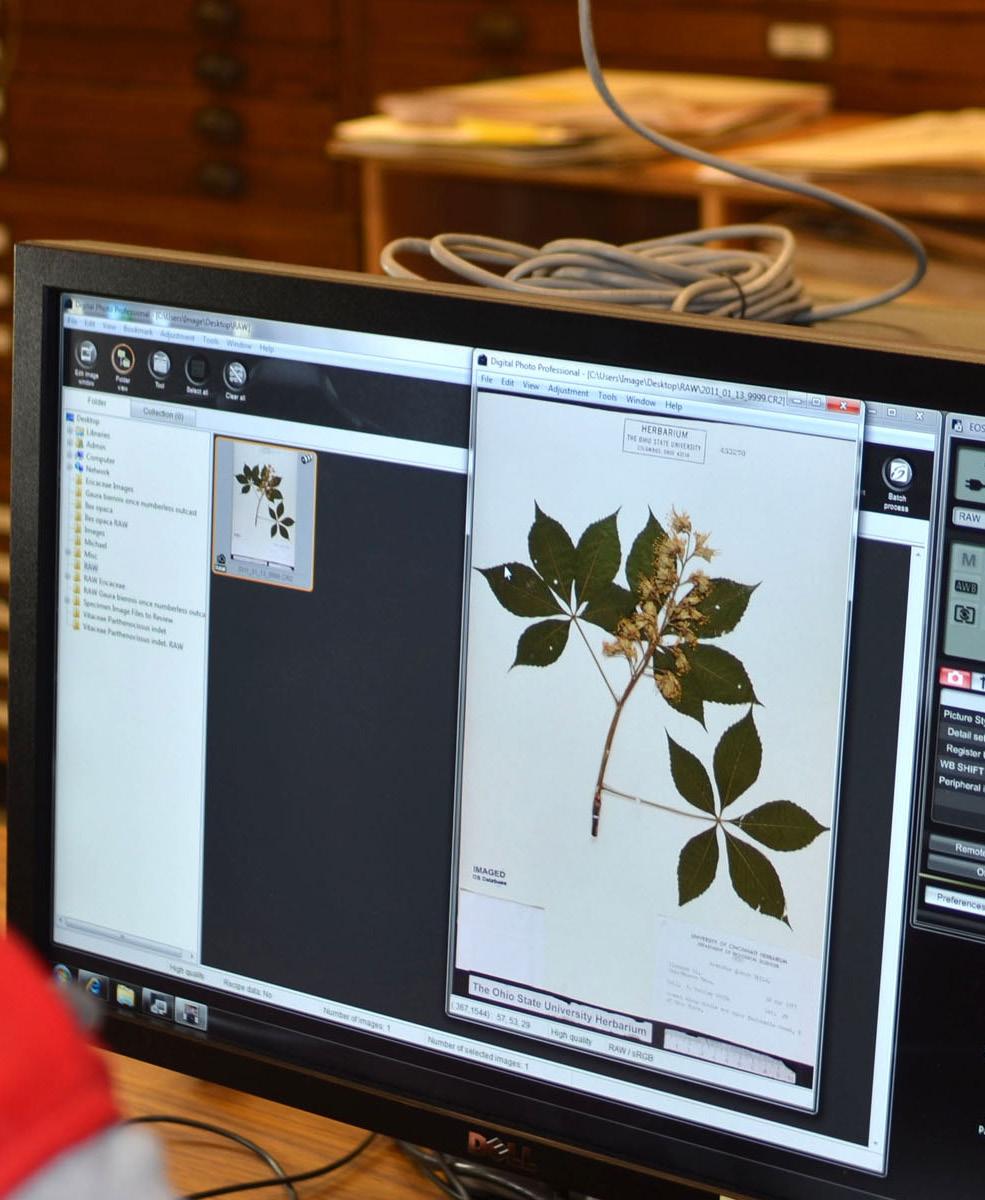
2 minute read
Herbarium BRIT Project
Tarleton Herbarium Part of $1.49 Million BRIT Project
Herbarium Collection Tarleton State University is participating in a $1.49 million grant to digitize Texas herbarium collections received by the Botanical Research
Institute of Texas. EBRIT received funding from the National Science Foundation to digitize herbarium specimens gathered in Texas and Oklahoma. Peter Frisch, Vice President of Research and Director of the BRIT Herbarium in Fort Worth, is the principal investigator for the project. “The project continues BRIT’s and Tarleton’s collaboration in research and education, bringing knowledge of the regional flora to the forefront of our communities while helping to address the global biodiversity crisis,” Fritsch said. The four-year project brings together 46 collaborating herbaria to mobilize the data from nearly two million plant specimens. It is primed for action by its strong integration with the Texas and Oklahoma Regional Consortium of Herbaria (TORCH, www.torcherbaria.org), which will help oversee the project. Coordination with Integrated Digitized Biocollections (idigbio.org) will facilitate team meetings, broader impact elements and data workflows, mobilization and access.

The Tarleton Herbarium has been a member of TORCH since its inception and moved its collection of 7,000 specimens to BRIT so they can be imaged and included in the project. Dr. Allan Nelson, Curator of the Tarleton Herbarium, is working with Tiana Rehman, BRIT’s Herbarium Collections Manager, to ship specimens. Rehman’s team is unpacking specimens delivered to BRIT, isolating them and treating for possible insect infestation, scanning images, adding data to the TORCH database, repacking the specimens, and shipping them back to Stephenville. “The Tarleton Herbarium has important research voucher specimens for Erath County, Padre Island National Seashore and numerous investigations of ecosystems in the Cross Timbers ecoregion,” Dr. Nelson said, adding: “The advent of data mobilization from biological specimens housed in U.S. institutions has profoundly enhanced the value of museum collections and has allowed scientific questions to be addressed in novel ways. Because these two states constitute a major crossroads of North American ecological and plant diversity, digitizing their plant specimen data can serve as a key element for understanding ecosystem evolution across the North American continent.” The project is expected to contribute to a globally competitive science, technology, engineering and mathematics (STEM) workforce through workshops and lectures for its technicians and practical training for undergraduate interns. TORCH held its annual meeting at Tarleton in 2007. Dr. Nelson served on the 2016–2017 TORCH steering committee, and he has attended numerous workshops with the group. Over the years, the Tarleton Herbarium has involved several undergraduate and graduate students as well as volunteer workers. In this capacity, students learn to prepare specimens and the basic curation of a collection.

Digitizing Files








